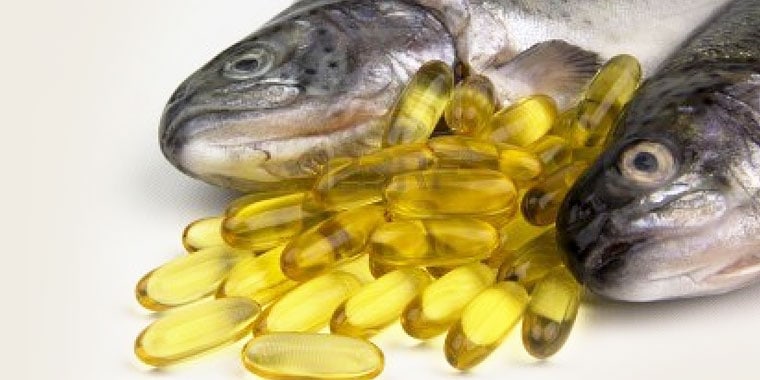
Salmon oil has numerous benefits in dogs’ diets. For example, it is a rich source of fatty acids, vitamins and minerals.
In dog nutrition, salmon has interesting nutritional value and has clear advantages over other foods, such as meat. In fact, it has a low caloric value with a minimum fat intake, even if of very high quality, and a high protein density. In this sense, we will later analyze the benefits of salmon oil for dogs.
This type of fish contributes to the diet low amounts of cholesterol and a high concentration of polyunsaturated fatty acids. One example is omega 3, which protects against cardiovascular disease.
However, not all salmon have the same nutritional value, nor the same concentration of omega 3. The most interesting are king salmon ( Oncorhynchus tshawytscha ) and red salmon ( Oncorhynchus nerka ), compared to keta salmon ( Oncorhynchus keta ) and al pink salmon ( Oncorhynchus gorbuscha ).
What’s so special about salmon oil?
Salmon oil for dogs is a natural product, the extraction method of which is cold, so it is an unprocessed food . It has a high concentration of omega-3 essential fatty acids, such as eicosapentaenoic acid (EPA) and 12% docosahexaenoic acid (DHA).
EPA fatty acid is a precursor of eicosanoids, which is involved in many functions of the body. They regulate, for example, the production and function of cytokines. These are proteins that moderate the production of certain cell types that are involved in the development of diseases such as cancer. In addition, they reduce the inflammatory response of the body and attenuate weight loss.
On the other hand, docosahexaenoic acid (DHA) prevents neurodegenerative diseases and the natural aging of the brain of dogs.
Salmon oil, compared to other animal foods, provides many minerals and vitamins . In fact, it is a rich source of Vitamin D, which is needed to keep your dog’s bones strong. It also contains Vitamin E, which is a good antioxidant, as well as Vitamin A which is excellent for cell regeneration.
Benefits of salmon oil for dogs
In addition to the clearly visible effects of salmon oil in dogs’ diets, such as a more silky and shiny coat, this substance has other attributes. Indeed, this substance prevents and improves many ailments and diseases, for example:
- Improve blood pressure in dogs suffering from hypertension . This is because it expands the blood vessels.
- Thanks to its anti-inflammatory effect, it counteracts swelling of the joints in rheumatoid arthritis.
- It prevents strokes.
- Unlike humans, dogs do not usually suffer from primary osteoporosis. However, adult dogs can suffer from osteomalacia or rickets due to a lack of mineralization . In this sense, salmon oil prevents and improves this condition.
- Relieves kidney problems .
- Promotes weight loss in obese animals . It also lowers blood sugar levels.
- In dogs with a high cholesterol level, it contributes to lower blood fat levels, although it should always be combined with a healthy lifestyle.
- Reduces and prevents cardiovascular problems in dogs.
- Improve your dog’s hearing health. Prevents inflammatory problems and ear infections .
How to include salmon in the dog’s diet?
The best way to include any new food in a dog’s diet is to do it as naturally as possible. For those owners who have their pet on a BARF diet , they only need to include salmon once or twice a week . In fact, it’s not just the salmon oil that’s beneficial, but the whole fish.
Owners who feed their dogs with feed and other food formats will be able to find cold pressed salmon oil on the market. As we have said, it is a very natural, rich and healthy product for pets. This product can be mixed with their feed or wet food.
However, for those dogs that may suffer from a blood clotting disorder, you should consult your vet before including salmon in their diet. This is due to the fact that salmon has a high concentration of vitamin K , which prevents blood clotting.






